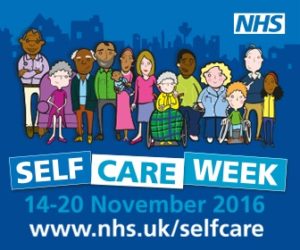How to improve your mental wellbeing
 Mental wellbeing describes your mental state – how you are feeling and how well you can cope with day-to-day life.
Mental wellbeing describes your mental state – how you are feeling and how well you can cope with day-to-day life.
Our mental wellbeing is dynamic. It can change from moment to moment, day to day, month to month or year to year.
“Mental wellbeing is essential for me to function and be happy.”
Think about what is affecting your wellbeing
We’re all different. What affects someone’s mental wellbeing won’t necessarily affect others in the same way.
But we all have times when we have low mental wellbeing, where we feel stressed, upset or find it difficult to cope.
“Stress, loneliness, inactivity, lack of sleep are all negative.”
Build positive relationships
Connecting with others can help us to feel a greater sense of belonging and can help to challenge feelings of loneliness
“I find extremely supportive friends and family help, finding a fulfilling hobby: horse riding, walking the dogs and yoga.”
Take time for yourself
At times you may feel guilty for spending time on yourself. But it’s essential for your wellbeing and can help you to be more resilient.
“I just found that I had to make room to be well. Sounds daft but give yourself some space – in my case I used mindfulness to help me gain control.”
Look after your mental health
If you’re living with a mental health problem, taking steps to look after your mental health can help you improve your wellbeing.
Look after your physical health
Looking after your body can help to keep you mentally well. Making small, gradual changes can have a positive impact on your mental wellbeing – try to start with one or two things you feel able to do.
Set yourself a challenge
Find something you like doing and do more of it.
“Focus on ‘small wins’ don’t chase big achievements. Do the little things and use it as a springboard whatever you can do be proud of it!”
Ask for help
- Think about treatment options. If you’re finding things really difficult, you might walk to talk to your doctor about any support services in your local area. You might want to try counselling to talk through the things you’re finding challenging with a trained professional. See our pages on seeking help for more on how to speak to your doctor about your mental health, and our pages on talking treatments.
- Don’t pressure yourself to carry on as normal. Take small steps and if you are finding it difficult to cope on your own, don’t be afraid to ask for help. For example, you may need support at work or help with day-to-day tasks, such as cleaning or childcare.
- Plan for a crisis. When you’re really unwell, it can be hard to ask for the support you need or figure out what support you want. Making a crisis plan while you’re well can help you can stay in control of your treatment, and mean other people know how best to help. See our page on crisis plans for more.
- Stay safe. If your feelings become overwhelming, and you have suicidal thoughts or you think you may self harm, remember that you can pick up the phone at any time of night or day and talk to the Samaritans.
Read more on the Mind website www.mind.org.uk/information-support/tips-for-everyday-living/wellbeing/
Needsupport?
Samaritans – call 116 123
free anytime day or night
Release the Pressure
Call 0800 107 0160
Chat online www.mentalhealthmatters.com/our-services/helpline-services/time-online/
CALM — call 0800 585858
free 5pm till12 midnight
NHS non emergency:
Call 111
Contact your GP
#selfcareforlife





